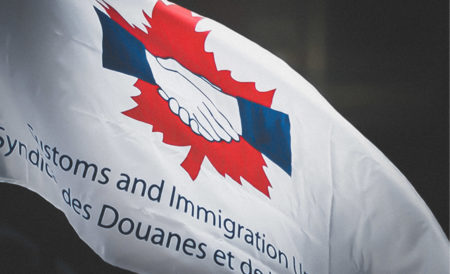The Public Service Alliance of Canada (PSAC) has received a strike mandate from members in the Program and Administrative Services, Operational Services, Technical Services, and Education and Library Science bargaining groups, which collectively represent more than 120,000 federal government workers employed by Treasury Board.
“The cost of living has hit highs we haven’t seen in 40 years, and people are struggling. Every day, we see that our dollar doesn’t go as far at the grocery store or at the gas pump,” said Chris Aylward, PSAC national president. “Today, PSAC members are sending a clear message that they won’t be taken for granted, they won’t fall further behind, and they’re ready to fight for better.”
The strike mandate follows nationwide strike votes that took place from February 22 to April 11, and comes on the heels of the strike vote mandate announced last week for 35,000 PSAC-UTE members working at the Canada Revenue Agency. A strike by PSAC members working for the federal government would be the largest against any single employer in Canada’s history.
“Our members won’t take the decision to strike lightly. They know that a strike will be difficult for them and for the Canadians who depend on the services they provide,” said Aylward. “But they’re exercising their bargaining power because they just can’t wait any longer. Their bills can’t wait. Their families can’t wait. None of us can.”
PSAC is the largest federal union representing federal public service workers, including workers who got vital new financial aid programs like CERB and emergency business loans up and running for Canadians in record time during the pandemic. They’re also cleaners and cooks on military bases, clerks and maintenance workers, tradespeople, Coast Guard search and rescue teams, teachers, firefighters and the people Canadians rely on to help process employment insurance, passport applications and immigration documents.
Negotiations between PSAC and Treasury Board began in June 2021, but reached impasse in May 2022. The two sides met again during mediation in September and Public Interest Commission (PIC) hearings in December before a PIC report was issued in February with non-binding recommendations.
This article was first posted on the PSAC website.







